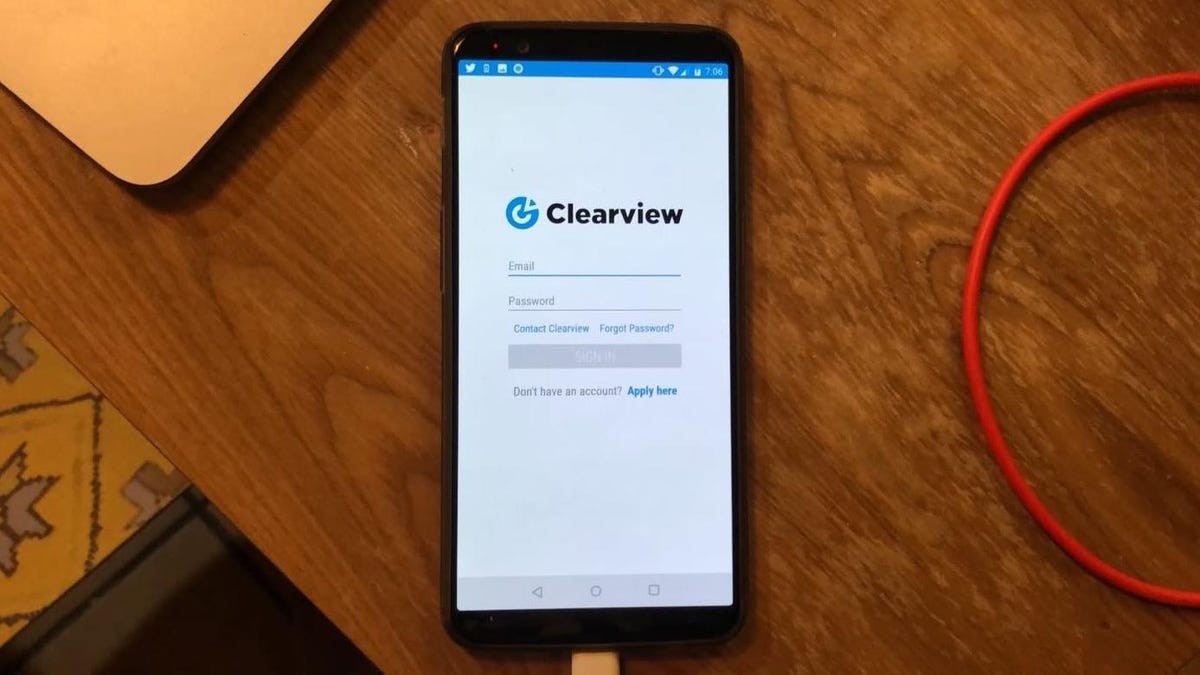Shady Face Recognition Firm Clearview AI Says It's Left Canada Amid Two Federal Investigations - 4 minutes read
 Photo : Dhruv Mehrotra
Photo : Dhruv MehrotraDystopian, U.S.-based face recognition firm Clearview AI has suspended its contract with the Royal Canadian Mounted Police (RCMP ), effectively locking its business out of Canada entirely, Bloomberg reported on Monday.
Advertisement
Clearview has become a particular flash point in the backlash to police use of face recognition, which aside from being riddled with bugs is inseparable from racial profiling and infringement of civil liberties. A BuzzFeed investigation in February 2020 showed that Clearview had 2,200 contracts with law enforcement agencies, companies, and individuals around the globe, including over 30 police clients in Canada such as the RCM P. The company tossed around access to its database to the rich and powerful as a marketing tool and told police that they could use the technology pretty much however they like, even as those contracts largely were kept under wraps.
In Canada, the firm is facing an open investigation by the federal Office of the Privacy Commissioner of Canada (OPC) and its provincial counterparts in British Columbia, Alberta, and Québec, to determine whether its non-consensual data scraping violated the Personal Information Protection and Electronic Documents Act or regional laws. The federal commissioners also launched a separate probe under the Privacy Act into the RCM P, which initially denied any contract with Clearview but admitted at the end of February its child exploitation unit had been using its face recognition tech for four months. In March, the RCM P said it would continue the contract but only use Clearview tools under “very limited and specific circumstances.”
Advertisement
Neither probe is complete, but they apparently spooked Clearview enough to sever ties with the RCM P and haul ass out of Canada. The OPC said in a statement on Monday that Clearview has advised them it has “indefinitely suspended” its contract with its sole remaining Canadian client—the RCM P—and it would no longer sell its face recognition tech anywhere in Canada. The statement did not, however, clarify whether Clearview has agreed to stop scraping the data of Canadian citizens or delete whatever information it already has.
While scraping such data from public servers is legal in the U.S. and there is no federal law regulating face recognition, founder Hoan Ton-That’s remarkable ability to come across as ominously as possible has drawn attention to Clearview’s other legal liabilities, such as alleged violations of state law and copyright infringement. Ton-That was reported in April 2020 to have extensive ties to far-right and white supremacist activists, some of whom he employed, making all those contracts look even more sinister.
A number of U.S. cities, including San Francisco and more recently Boston, have banned the use of face recognition by police entirely. Bigger competitors have exited the market, or at least pretended to, in response to nationwide protests against the police killing of Minneapolis man George Floyd and entrenched, systemic racism in U.S. police departments. Last month, IBM announced it would no longer develop face recognition systems. Microsoft announced it would stop selling any face recognition tech to police until a federal law regulating its use was implemented, while Amazon took the meaningless gesture of suspending sales to police for one year.
Clearview and the other smaller firms that dominate the face recognition market haven’t backed down from offering their services to police clients in the states. Clearview even used the ongoing coronavirus pandemic as a pretext to pitch the feds and states on the creation of contact-tracing systems using existing security cameras installed in myriad public and private facilities—creating limitless opportunities for abuse by authorities.
Advertisement
But Clearview is facing numerous lawsuits in the states, including one from the attorney general of Vermont and another from the ACLU alleging violations of Illinois state biometrics law. It has received cease and desists from companies including Facebook, Twitter, Google, and YouTube. The entire industry also faces an existential threat in the form of regulation. Senator Ed Markey has drafted federal legislation that would ban the use of all biometrics except fingerprint and palm-print analysis by the federal government and its contractors throughout the geographic U.S. and its territories.
Canada may be just the first country to tell Clearview to go screw itself. The European Data Protection Board opined in June that the use of products like Clearview’s would be illegal throughout the EU, likely scuttling its plans for an an expansion into Europe.
Source: Gizmodo.com
Powered by NewsAPI.org